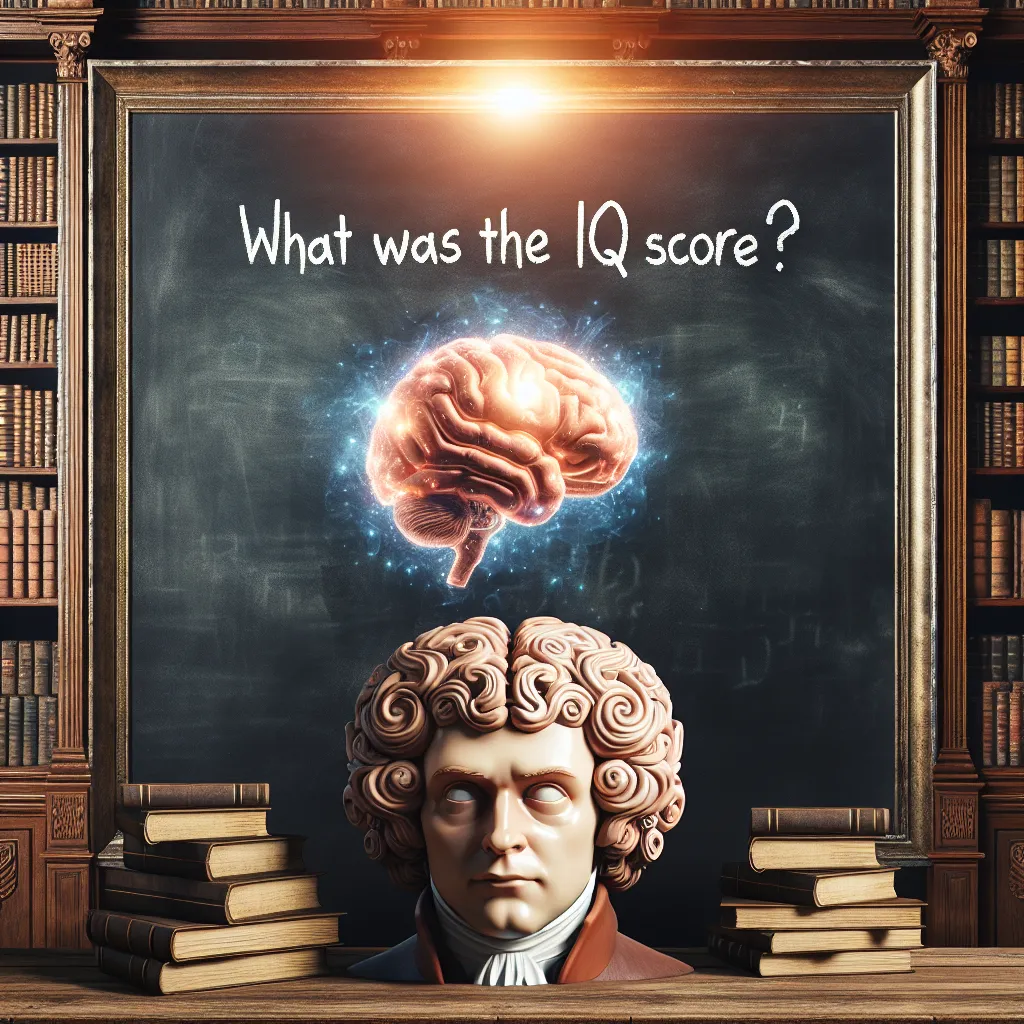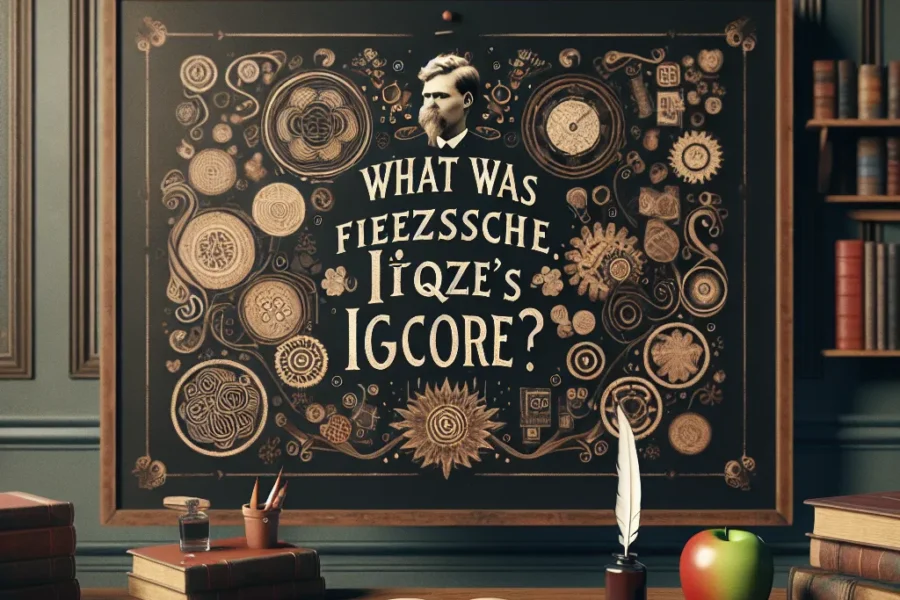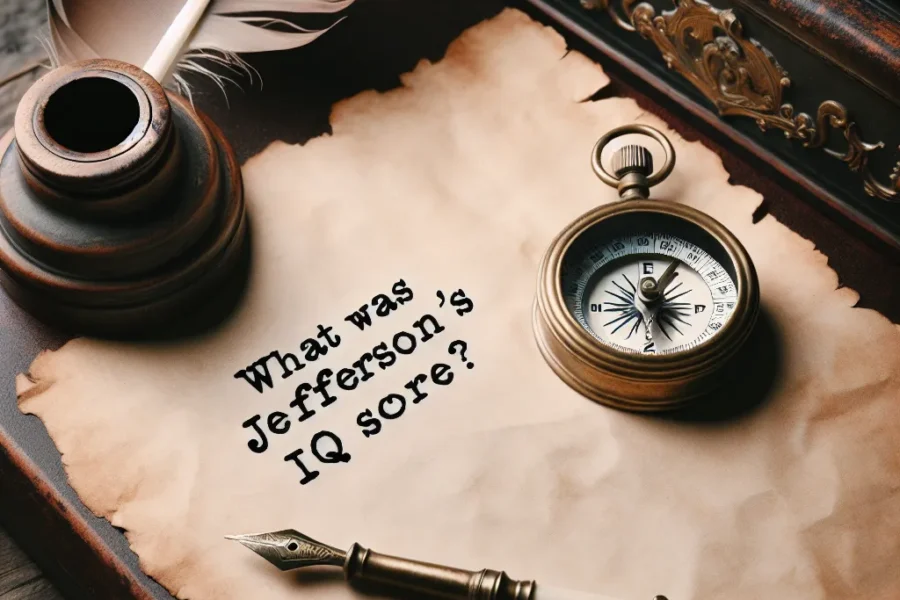Jean-Jacques Rousseau is one of the most influential philosophers, writers, and composers of the 18th century. His works and ideas have had a profound impact on modern political, educational, and artistic thought. Born in 1712 in Geneva, Rousseau became a central figure in the European Enlightenment, challenging the norms and conventions of his time with bold, revolutionary ideas. These ideas include the concept of the “noble savage,” the social contract, and the importance of education tailored to individual development. However, one intriguing question that often arises is: “What was Jean-Jacques Rousseau’s IQ score?”
If you are looking for legitimate IQ Tests which pass the entry bar for Mensa, see our IQ Tests.
Rousseau lived in a different era, long before the invention of the modern IQ test, which was developed in the early 20th century by psychologists Alfred Binet and Theodore Simon. Therefore, any attempt to quantify Rousseau’s intelligence using contemporary metrics is purely speculative. The concept of IQ—or intelligence quotient—is a relatively recent invention in the grand tapestry of human history.
Nevertheless, there are several reasons why Rousseau is often considered an intellectual giant. His prolific body of work, which spans political theory, education, autobiography, and music, demonstrates a remarkable breadth and depth of thought. Let’s delve into some of his major contributions to understand why, despite the lack of an IQ score, Rousseau is regarded as a genius.
### Political Philosophy and the Social Contract
One of Rousseau’s landmark contributions is his theory of the social contract, which he elaborated on in his 1762 book “The Social Contract.” This work is considered one of the cornerstones of modern political philosophy. Rousseau posited that human beings are inherently good but become corrupted by society. He argued that a legitimate political order arises from a social contract agreed upon by all members of society, aimed at preserving individual freedom while ensuring mutual cooperation.
The opening line of “The Social Contract” is famously provocative: “Man is born free, and everywhere he is in chains.” Rousseau’s idea that political authority should derive from the general will of the people rather than from divine right or hereditary privilege has inspired countless political movements and revolutions, including the French Revolution.
### Education and “Émile, or On Education”
In his 1762 treatise “Émile, or On Education,” Rousseau tackled the subject of education with groundbreaking insights. He proposed an educational system focused on the natural development of the child, rather than the rote memorization of information. Rousseau emphasized the importance of experiential learning, where the child interacts with the environment and learns through doing rather than passively receiving knowledge.
Rousseau’s educational philosophy has had lasting impacts and laid the groundwork for modern pedagogical approaches, such as Montessori and Waldorf education. His insistence on the importance of fostering a child’s curiosity and the development of critical thinking skills demonstrates an advanced understanding of human cognitive development, something that modern IQ tests aim to measure.
### Autobiographical Works
Rousseau’s confessional style, exemplified in “Confessions” and his other autobiographical works, introduced a new form of introspective writing that has influenced countless authors since. His exploration of his own thoughts, feelings, and experiences provided a deep and honest look into the human psyche. This kind of self-examination shows a high level of emotional intelligence, a component of overall IQ that modern tests often seek to gauge.
### Contributions to Music
Apart from his philosophical works, Rousseau was also an accomplished musician and composer. His opera “Le Devin du Village” was a great success and is still performed today. Rousseau developed a new system of musical notation, which he believed was simpler and more intuitive than the existing systems.
His deep understanding of musical theory and ability to compose complex pieces reveal a form of spatial-temporal intelligence—an essential aspect of what IQ tests measure when they assess problem-solving skills through patterns and sequences.
### Literary Achievements
Rousseau’s literary talent is evident in his novels, essays, and dramatic works. His epistolary novel “Julie, or the New Heloise” is considered a forerunner of Romantic literature. Rousseau’s ability to engage in multiple forms of writing, from novels to essays to operas, indicates a high level of verbal-linguistic intelligence—a cornerstone of many modern IQ tests.
### Intellectual Legacy
Finally, Rousseau’s enduring influence on a wide array of fields—from political science to education to literature—speaks volumes about his intellectual capabilities. His ability to think critically and challenge the status quo, coupled with the lasting relevance of his ideas, illustrates an exceptional intellectual prowess.
Modern IQ tests often measure an individual’s ability to think abstractly, comprehend complex ideas, solve problems, and engage in various forms of reasoning. While we can never know Rousseau’s exact IQ, his impressive body of work suggests that he possessed these qualities in abundance.
### Admirers and Detractors
Rousseau was a polarizing figure, even during his lifetime. Voltaire, another intellectual luminary of the Enlightenment, often clashed with Rousseau. They had fundamental disagreements on topics such as religion, governance, and human nature. Despite these debates, even Rousseau’s harshest critics could not deny the depth and originality of his thought.
Their intellectual battles serve to highlight the dynamic and competitive nature of Enlightenment thinking—a period marked by rapid advancements in science, philosophy, and the arts. Rousseau’s ability to hold his own and contribute meaningfully to this environment is another indicator of his extraordinary cognitive abilities.
### Conclusion
While it is impossible to assign a concrete IQ score to Jean-Jacques Rousseau, his impact on multiple disciplines and his ability to generate groundbreaking ideas suggest that he possessed an exceptionally high level of intelligence. His works continue to be studied and revered, underscoring the enduring influence of his thought.
Rousseau’s genius lay not just in his intellectual capabilities but also in his emotional intelligence, creativity, and radical willingness to challenge existing paradigms. These multifaceted qualities are what make him one of the most remarkable figures in intellectual history, transcending the limitations of any numerical quantification of intelligence.
If you are curious about your own intellectual capabilities and are looking for legitimate IQ tests that pass the entry bar for Mensa, see our IQ Tests. Understanding the complexities of human intelligence, just as Rousseau sought to understand human nature, can lead to deeper self-awareness and the realization of your own potential.



Leave a Comment